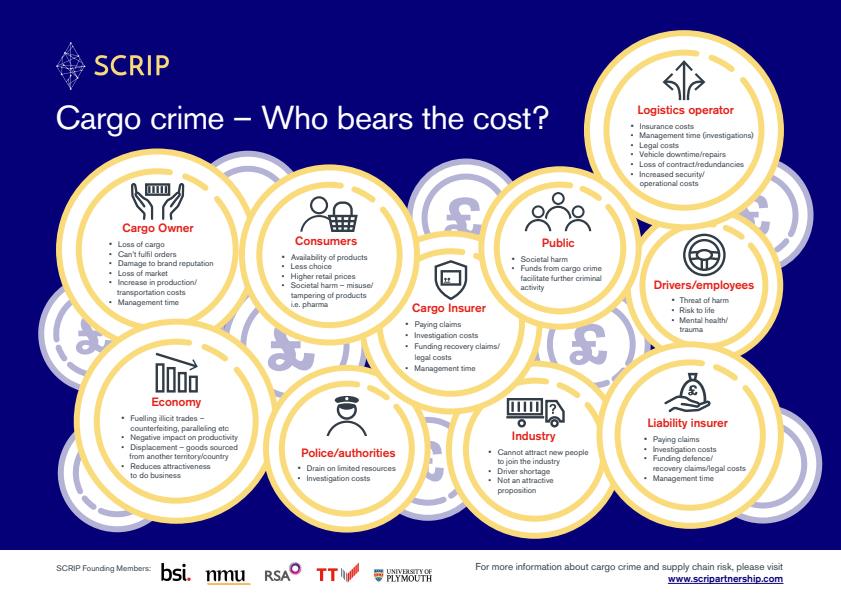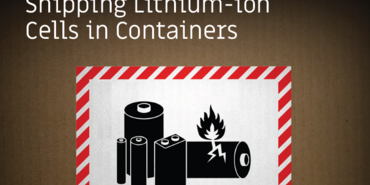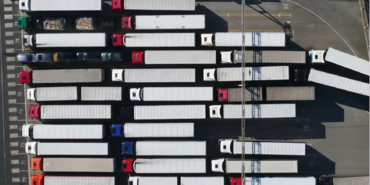Cargo crime: who bears the cost?
Produced with the Supply Chain Risk Industry Partnership (SCRIP), this document seeks to demonstrate the far-reaching impacts of cargo crime.
The founding Members of the SCRIP are BSI, NMU, RSA, TT Club and the University of Plymouth.
The infographic outlines the various stakeholders impacted by cargo crime and the costs they bear:
- Cargo owners face loss of cargo, inability to fulfill orders, brand reputation damage, lost market share, increased production/transport costs, and management time dealing with it.
The overall economy is negatively impacted through fuelling of illicit trade, reduced productivity, goods displaced to other regions, and reduced business attractiveness.
Drivers and employees face threats of harm, risk to life, and mental health trauma.
Police and authorities have to drain limited resources on investigations.
The logistics industry struggles to attract new people, faces driver shortages, increased insurance/security costs, legal costs, vehicle downtime, and potential contract losses
Insurers bear the costs of claims, investigations, legal costs, and management time.
Consumers faceless product availability, choice, and higher prices. Some products like pharmaceuticals can cause societal harm if tampered with- The wider public faces societal harm as criminal funds feed further illegal activity.
Overall, cargo crime has far-reaching consequences across many stakeholders, from individual employees to corporations, authorities, and the broader economy and society. Addressing cargo crime requires a collaborative multi-stakeholder approach.
Documents
Cargo Theft Who Bears The Cost SCRIP (231 kB) 24/03/2021
- Author
- Staff Author
- Date
- 24/03/2021






